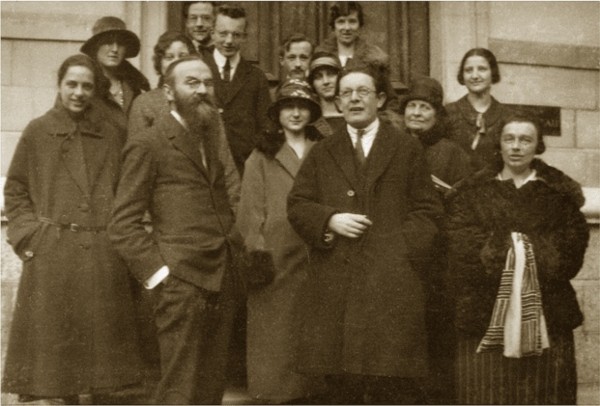- Opinion
- 19 de February de 2025
- No Comment
- 6 minutes read
The demolition of constructivism in education

The demolition of constructivism in education

Current educational policies are increasingly influenced by the romantic ideals of Rousseau, placing them in opposition to structured teaching and the systematic transmission of knowledge. These state-driven initiatives are often conceived in offices far removed from the classroom, yet closely aligned with the so-called “chalk fugitives”. In Spain, these educational reforms are largely shaped by the romantic constructivism of Piaget, which has permeated the thinking of policymakers and their advisors. This influence traces its origins to 18th-century German idealism, which gave rise to progressive pedagogy, Claparède’s educational theories, Piaget’s constructivism, the philosophy of Summerhill School, Tonucci’s approaches, critical pedagogy, the theory of multiple intelligences, project-based learning, and competency-based assessment. Over the past century, these movements have promoted imagination, happiness, and creativity as the pillars of spontaneous learning in children.
While some of these educational theories may have yielded positive results in specific cases, their success has often been contingent on ideal conditions—when students, administrators, therapists, families, and schools all demonstrate strong commitment and possess effective expertise. In essence, educational innovations may work for students already excelling, but they fail to support those who struggle. The fundamental issue with theoretical pedagogies is their lack of universal applicability. When applied on a national scale, they have not reduced academic failure; rather, they have exacerbated it, contributing to the decline of constructivism in primary and secondary education.
These so-called “innovative” pedagogies often disparage contemporary didactics, dismissing traditional models such as the General Basic Education (EGB) system as nostalgic relics. Ironically, however, many of these proponents idealise the educational frameworks of the Spanish Republic of 1936 or the General Education Law of 1970. Such nostalgia must be set aside in favour of effective educational practices. It is vital to discard the false equivalence between “innovation” and “improvement,” just as we must reject the oversimplified notion that the past is inherently inferior. Despite their claims to innovation, these pedagogical approaches remain deeply rooted in 18th-century German idealism, 19th-century progressive pedagogy, early 20th-century constructivism, and the schools of the now-defunct Spanish Republic. These ideas are at least two centuries old and thus lack any genuine claim to novelty. Only those with little historical awareness would continue to label them as such. The goal should not be innovation for its own sake, but the improvement of education through effective, evidence-based practices.
Nevertheless, contemporary educational discourse continues to prioritise emotional education and constructivism over direct instruction and long-term knowledge acquisition. Piaget, the father of constructivism, argued that knowledge is latent in children at birth, famously stating that education should not be about filling an empty vessel, but about igniting a hidden flame. While this notion is rhetorically appealing, it is fundamentally flawed. A newborn mind does not inherently possess the multiplication table, literacy skills, or any of the vast human accomplishments that a well-structured school can impart. Yet, Piaget’s theories have become entrenched in educational legislation, and many continue to echo his views until, through sheer repetition, even the most empirically-minded are persuaded.
Piaget also asserted that teaching a child something deprives them of the opportunity to discover it independently—another fallacy. Without structured instruction, children struggle to acquire foundational knowledge and cannot learn from past mistakes to develop more sophisticated thinking. Knowledgeable teachers, who are able to transmit their expertise effectively, are indispensable. Piagetian constructivism disregards this necessity, but it is a well-established fact that knowledge transfer cannot occur without prior knowledge. Moreover, the fewer concepts a student learns, the more limited their capacity to acquire new and advanced knowledge, ultimately leading to the collapse of both the school system and constructivism itself.
Constructivism may be effective for adults who already possess a substantial body of knowledge, as prior learning facilitates the assimilation of new concepts. However, this is not the case in primary and secondary education, where learners lack the foundational knowledge required to engage in constructivist learning. In essence, those who are already learned can afford to engage in constructivist methods because they have a wealth of prior knowledge, while novices, who lack this foundation, cannot. Experts can build upon existing knowledge to construct new ideas, but beginners must first be taught. Furthermore, for students from families with limited academic backgrounds, the only way to bridge the gap with their peers from more educated households is through rigorous instruction and structured knowledge transmission. True equity does not mean lowering standards; it is achieved through highly competent, knowledgeable teachers—not through the misguided rhetoric of constructivist ideologues.
Source: educational EVIDENCE
Rights: Creative Commons


